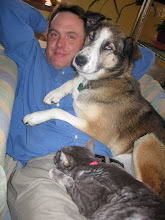(4) The term “human organ paired donation” means the donation and receipt of human organs under the following circumstances:
(A) An individual (referred to in this paragraph as the “first donor”) desires to make a living donation of a human organ specifically to a particular patient (referred to in this paragraph as the ‘first patient’), but such donor is biologically incompatible as a donor for such patient.
(B) A second individual (referred to in this paragraph as the “second donor”) desires to make a living donation of a human organ specifically to a second particular patient (referred to in
this paragraph as the “second patient”), but such donor is biologically incompatible as a donor for such patient.
(C) Subject to subparagraph (D), the first donor is biologically compatible as a donor of a human organ for the second patient, and the second donor is biologically compatible as a donor of a human organ for the first patient.
(D) If there is any additional donor-patient pair as described in subparagraph (A) or (B), each donor in the group of donor-patient pairs is biologically compatible as a donor of a human
organ for a patient in such group.
(E) All donors and patients in the group of donor-patient pairs (whether 2 pairs or more than 2 pairs) enter into a single agreement to donate and receive such human organs, respectively, according to such biological compatibility in the group.
(F) Other than as described in subparagraph (E), no valuable consideration is knowingly acquired, received, or otherwise transferred with respect to the human organs referred to in such subparagraph.
Tribes under this rule could match specific tribal members for living donations; they could run their own database to create matched pairs. This would be especially helpful for kidney donations.
But this rule doesn't apply to donating organs once one is deceased, as that is not a "living donation."

No comments:
Post a Comment